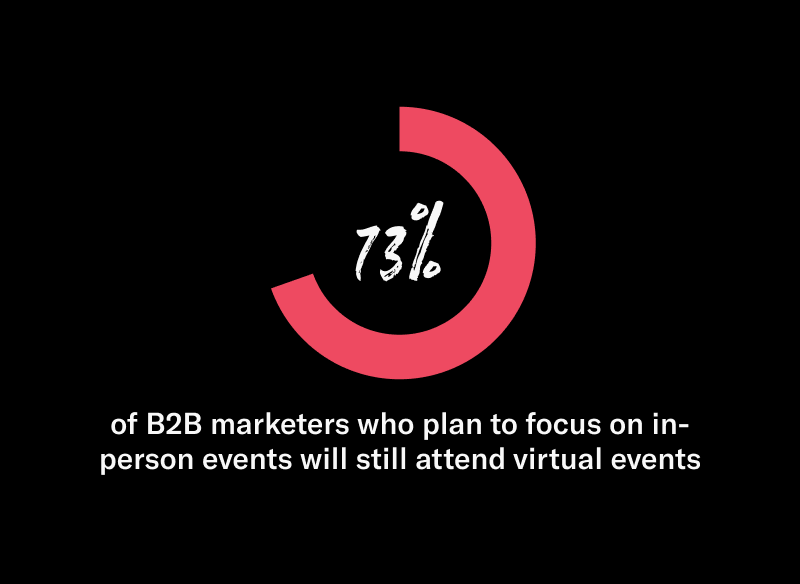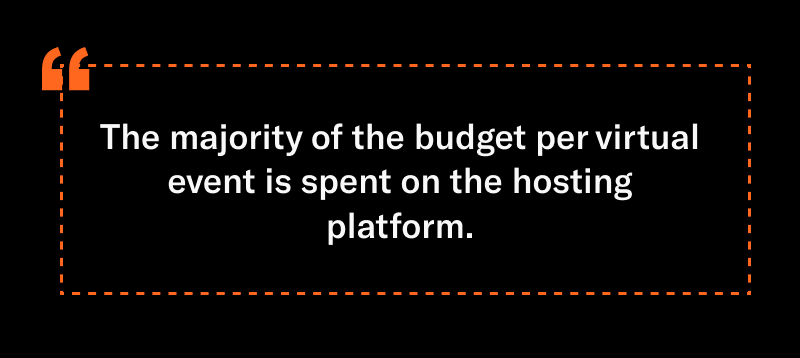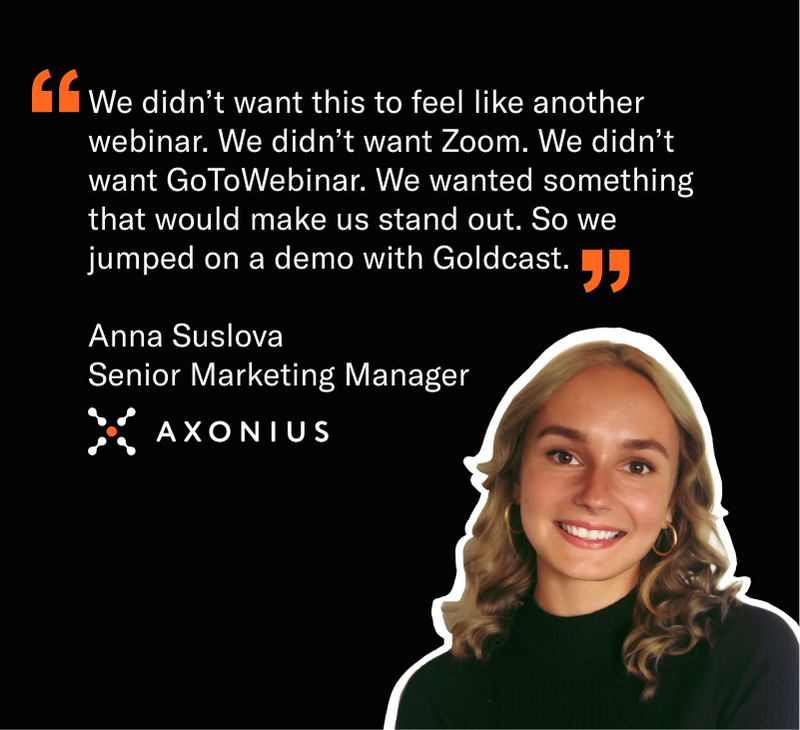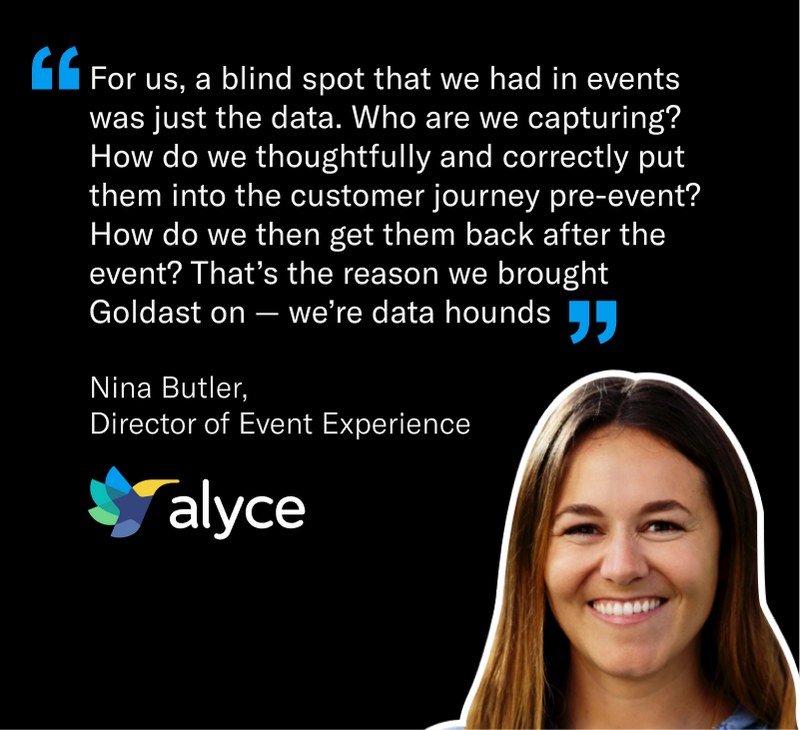Best Virtual Conference Platforms: The Modern Marketer's Guide in 2022

Maximize Your Marketing ROI
Join 10,000 other marketers already getting the best tips on running engaging events that boost pipeline and create raving fans.
There’s no two ways about it. Entering the 2020s has been anything but smooth sailing.
As event marketers, it sometimes feels like we’ve spent the last couple of years just trying to keep our heads above the water. But now that virtual and hybrid events have solidified their place in the event marketing toolbox, we’re finally finding our feet in the expansive world of event marketing 3.0.
And moving forward, it’s all about attendee experience.
Virtual conferences are at the forefront of this new era, making it easier than ever to provide an unforgettable experience for participants, while gathering deep data that can help you claim your seat at the revenue table.
But if you really want to bring the experience and data together, you’re going to need a stellar virtual event platform to make it happen.
In this guide, we’re checking our bias at the door to help you find the best virtual conference platform to host your next event — including which features to think about depending on your unique marketing goals.
Here’s what we’ll cover:
- What is a virtual event?
- What types of virtual events can you host?
- How to choose the best virtual conference platform for you
- Types of virtual event software: One-for-all vs. All-in-one
First, the basics: What actually is a virtual event?
Back in the days before 2020, if you had a webcam, a microphone and a presenter, you had yourself a virtual event. But the game has changed — big time.
With virtual event invitations dropping into our inboxes left, right and center, attendee expectations have skyrocketed. So before you start thinking about your next virtual event, you’ve got to make sure it’s up to today’s standards.
Ask yourself:
- Is it interactive and engaging?
- Does it offer a personalized experience for attendees?
- Is it actually fun-to-use?
Because if it’s not wow-worthy by post-pandemic standards, it’s just not an event worth hosting.

What types of virtual events can you host?
For in-person events you need a venue to host your presentations and meetings. For virtual events, you need a platform. One that will sell your brand from the word ‘go’.
Ideally, no matter what type of event you’re hosting — conference, webinar or anything in between — your event will look and feel like your brand. And with the right platform, your event options are pretty much endless.
Here are just a few of the most common types of virtual events you can offer.

Source: Markletic
Virtual conferences
If you’re anything like the stellar event marketing team at Gremlin, you might want to host epic virtual conferences to help educate your prospects on your services and take your brand to the next level.
“We wanted lots of different ways for attendees to interact. From watching a video, to clicking on content, to chatting in a networking room or talking face-to-face in a booth,” explains Karli Williamson, Senior Events Manager at Gremlin.
With the right platform, you can differentiate your conferences from the endless webinars and digital meetups to create an exclusive and engaging experience for attendees.
Monthly power hours
If your marketing goals are less about brand awareness and more about increasing adoption with existing customers, you might try your very own custom event like the well-received BDR Gifting Power Hour hosted monthly by the amazing event marketing team at Alyce.
“That idea was sparked from our end users of Alyce which generally are business development reps or SDRs missing the camaraderie of the sales floor,” says Nina Butler, Director of Event Experience at Alyce. “There used to be these beautiful organic meetups that happened inside our customer accounts where BDRs would get together in a conference room from 1 to 3pm and do all their Alyce gifting. It was a really fun, common experience.”
With the right virtual conference platform, Nina and her team are able to recreate that experience for customers with the simple click of a button.
Summits
And then of course, there’s virtual summits like those hosted by the epic event marketing team at Drift. With endless programming and attendee engagement options, virtual summits are far from your typical webinar.
“It was tough at the beginning because although I’d done virtual events, I’d never really been in the webinar world. I wanted to make sure our new RevGrowth event didn’t feel like your typical webinar,” says Janna Erickson, Director of Events at Drift.
With the right platform powering their virtual summit, Janna and her team were able to get creative. Think: DJ sets on the mainstage, fireside chats in breakout rooms, and a buzzing attendee chat throughout the event.
And more...
Today, companies of all shapes and sizes are taking advantage of community events, webinars, sales kickoffs and endless other virtual event types. That’s why selecting the right online conference platforms for your needs is such a crucial step — it means you have options.
Now let’s take a closer look at how to find the best possible platform for your unique event, goals and brand.
How to choose the best virtual conference platform for you
If you’re all about elevating your virtual events, narrowing down your platform options is priority #1. But with literally hundreds of options out there to choose from, it’s no easy task.
“I was naive to how many virtual event platforms are out there,” says Callum Donnelley, Waylay’s Business Development, Events & Startups Manager. “Ones for certain industries, verticals, objectives. Ones for sales, marketing, brand awareness or just having a great time through gamification. Scouting that list took a very long time.”
To make life easier, we’ve broken it down into two main categories of virtual conference platforms: One-for-all vs. All-in-one.
Types of virtual event software: One-for-all vs. All-in-one
Despite the hundreds of online event platforms out there — when you really boil it down, you’re either looking at a one-for-all service (i.e., a pre-pandemic webinar platform that reinvented itself) or an all-in-one solution (a platform born out of a need to strengthen virtual events).
What is a one-for-all virtual conference platform?
The truth is, many popular virtual event platforms simply weren’t created for the space they now fill. As virtual conference software that was initially built only for the webinar use case, they did an awesome job of bridging that initial void back in 2020 — but they simply weren’t purpose built to support revenue-driven events.
What is an all-in-one virtual conference platform?
In this group, you have your next-generation conference software.
These online event platforms were created by founding teams who looked at the existing event landscape and knew virtual events could be much more. By mapping out and refining all of the various functions and features the virtual event industry was lacking — interaction, engagement and account-level data — they crafted specific features to help solve some of the most challenging event marketing problems.

Meet the one-for-all virtual meeting platforms
Most modern-day marketers are probably familiar with these virtual communication platforms. These “all-for-all” tools became a go-to for webinars but weren’t necessarily built for full-scale virtual events:
- Zoom
- Go To Webinar
- Google Meets
Let’s face it, our lives were pretty much ruled by Zoom for a lengthy portion of 2020/21. And, hey, we owe it some big props for getting us through those dark days.
With free and low-cost memberships on offer, these platforms are great if you’re just getting started in the virtual event space. From hosting a casual team chat all the way to larger groups all the way to big corporate functions, platforms like these give you a straightforward path toward building out your initial virtual event strategy — especially for start-ups and scale-ups where event budgets may be tight.
Because these platforms were initially built to serve meeting or webinar audiences, they tend to make the user experience simple for everyone. And when you’re starting out, simplicity is key.
❌ Watch out for plans with: Low maximum participant allowance, short meeting duration quotas, limited branding opportunities, and pricey feature add-ons.
Meet the all-in-one virtual conference platforms
If you’ve been on the virtual event scene a while and Zoom fatigue has hit your attendees, you’re probably ready to move on up to an all-in-one event platform that can be customized to your unique event format and needs.
These types of platforms were built for a wider variety of virtual events and come with a broader set of features for attendee experience and engagement. Here are the top of platforms that fit this category:
- Hopin
- Hubilo
- Bizzabo
- Goldcast
Platforms like this tend to offer a little more shazam than their predecessors, allowing users to explore multiple sessions at any time and allow for interactive elements such as polls, quizzes and Q&As.
But it shouldn’t end there. When you’re selecting a platform, make sure they have the following features:
- Branded and integrated registrations pages
- Seamless Google Analytics integration
- Speaker showcase page
- Customized navigation tabs
- Multiple sessions tracks for ultimate attendee choice
- Session and public chats
- Optimized screen share capabilities
- CRM and other MarTech stack integrations
❌ Watch out for: Its original purpose. If you find out a platform was initially built to host webinars, be sure they’ve really upped their game. To truly set these players apart, focus on the data grab — if they can produce awesome attendee insights on every element of your event, you’re onto a winner.
Where does Goldcast fit in?
At Goldcast, we’re an all-in-one event platform custom built for a variety of virtual and hybrid event formats.
But unlike many other all-in-ones, we go deeper on data, customization, engagement and support. That’s because we built Goldcast to provide B2B marketers a solution for hosting engaging, measurable and actionable events — results that just weren’t possible with other platforms on the market.
And as a revenue-driven event marketer, dimes (or preferably dollars) are what your results are all about.
So if you’re looking to step it up a notch and wow your boardroom, as well as your attendees, you need a platform that was designed to bring you the kind of data that can help move the pipeline forward, including insights on:
- Number of qualified registrations - split between New prospect/ MQL/ SQL/ Customers
- Actual attendance numbers - split between New prospect/ MQL/ SQL/ Customers
- Direct attribution vs. influenced attribution
- Amount of time spent in the networking session
- Net new pipeline
- Influenced pipeline from the event
- Number of sales-attendee 1:1 conversations
- Number of direct visits to your website
- Number of resource downloads
- Number and type of questions asked in live chats
- Closed-won opportunities
- Closed-won revenue
With account-level insights that arm your sales team with everything they need for personalized follow-ups, you can use your virtual conferences to help drive organizational revenue and win more buy-in for even more epic events in the future.

Benefit from the best
As an event pro, you already know just how valuable virtual events can be. And when you choose the best virtual conference platform to work with, it’s a breeze to convince the rest of your team too.
With reduced costs, data-led follow-ups, and an unparalleled attendee experience, the right platform can provide the ROI you need to keep doing what you do.
From the registration page your attendees land on to how you measure your success post-event, the best virtual conference platform is the one that will help you consistently engage your audience and drive real revenue for the business.

Transform Your Video Marketing with AI
Stay In Touch
Platform
Resources
© 2026 Copyright Goldcast, Inc. All rights reserved.





 Upcoming Events
Upcoming Events Event Series
Event Series On-Demand Events
On-Demand Events

